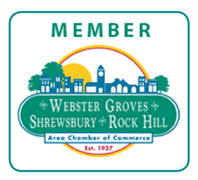
Tuesday, May 19, 2020
Devon:
Hi, everyone! We at DEAF, Inc. have decided to shift gears a bit for this COVID-19 series. With the COVID-19 Social Distancing enforced in many states, many of us are experiencing what some call “the new norm.”
With us today, is DEAF, Inc.’s Executive Director, Sarah Prechtel. I’ve asked Sarah to speak with us today as she has worked in the social work field for many years and may be able to shed some light on the impact of COVID-19 and our health.
Sarah! It has been nearly two months since we began to follow stay-at-home guidelines and practice social distancing. Undoubtably, it’s a challenge. With your experience, what are some things we can do to help take care of ourselves?
Sarah:
Absolutely, it is a challenge for many. Many are staying at home full-time for the first time, isolated from co-workers, friends and family. Our daily living routines are disrupted causing added anxiety, stress and strain—physically, mentally, and financially. It is completely natural for this disruption and uncertainty to lead to anxiety and stress. Now more than ever, we all must take care of our mental health and well-being. As we protect ourselves against potential exposure to the coronavirus, keep in mind that social distancing does not mean social isolation.
Devon:
This is a very good reminder. So, what are some examples or strategies to help take care of our mental health and well-being?
Sarah:
Good question. There are many strategies, but to name a few:
- Maintaining a regular schedule and routine. Wake up and get dressed and ready as if you were going to work.
- Staying connected. Keep in touch with your family and friends via FaceTime, Videophone, or Zoom as often as you were or more if you have the time.
- Stay informed. “Knowledge is Power,” meaning that it is good to keep up with what is happening in your city, but avoid continuous exposure to news that may trigger or elevate anxiety, stress, or panic.
- Get creative. Find a hobby that bring joy and distraction. A few examples include arts and crafts, gardening, yoga, cooking, and reading.
Devon:
These are great suggestions. The one thing I personally have found to be very helpful is exercise as I am an outdoors person.
Sarah:
Absolutely. Staying active is just as important as maintaining a routine. Go outside as often as you can and take a walk. The natural sunlight is also good for you. If you cannot get outside, do squats or stretches by your chair.
Devon:
Thank you so much for sharing these ideas. It sounds like there are a couple things I could improve on. I’m sure many others can relate as well. With COVID-19, access to counseling may be limited. I know that the Deaf Counseling Center is one place to go to for resources and videos on topics such as how to cope with anxiety, stress, depression, and maybe addiction. What are your thoughts?
Sarah:
Sometimes managing our own mental health can be challenging, especially if we are already vulnerable. We do not want you to feel alone and to go through this alone. Check with your employer to see if they offer EAP services. If you do not have access to counseling services, find a friend or a family member you trust, or contact your healthcare provider. There are also a number of deaf supported hotlines available.
Devon:
Sarah, thank you so much for your time. I’ve appreciated your insight.
Sarah:
Thank you for having me.
Sarah & Devon:
Stay safe, stay healthy!
_____________________________
Self-Care Sources:
Deaf Counseling Center
www.deafcounseling.com
National Deaf Therapy
https://www.nationaldeaftherapy.com
https://www.youtube.com/channel/UCj5bIzg7TtibxiIi6dDSxbA/videos
Health Signs Center on Facebook
https://www.facebook.com/HealthSignsCtr
You Are Not Alone.:
https://www.facebook.com/groups/514020822621062/?source_id=1448434782057233
Self-care ASL Videos:
https://www.youtube.com/watch?v=ffmWaGlFWO8
Other Sources:
https://www.csd.org/coronavirus
Deaf YES: Center for Deaf Empowerment and Recovery
@DeafYESCenter on Facebook
Disclaimer: This is neither professional medical advice, nor are we medical professionals. One should refer to CDC for care guidance and protection.
Copyright DEAF Inc. 2008-2024 l Privacy Policy l Terms & Conditions





